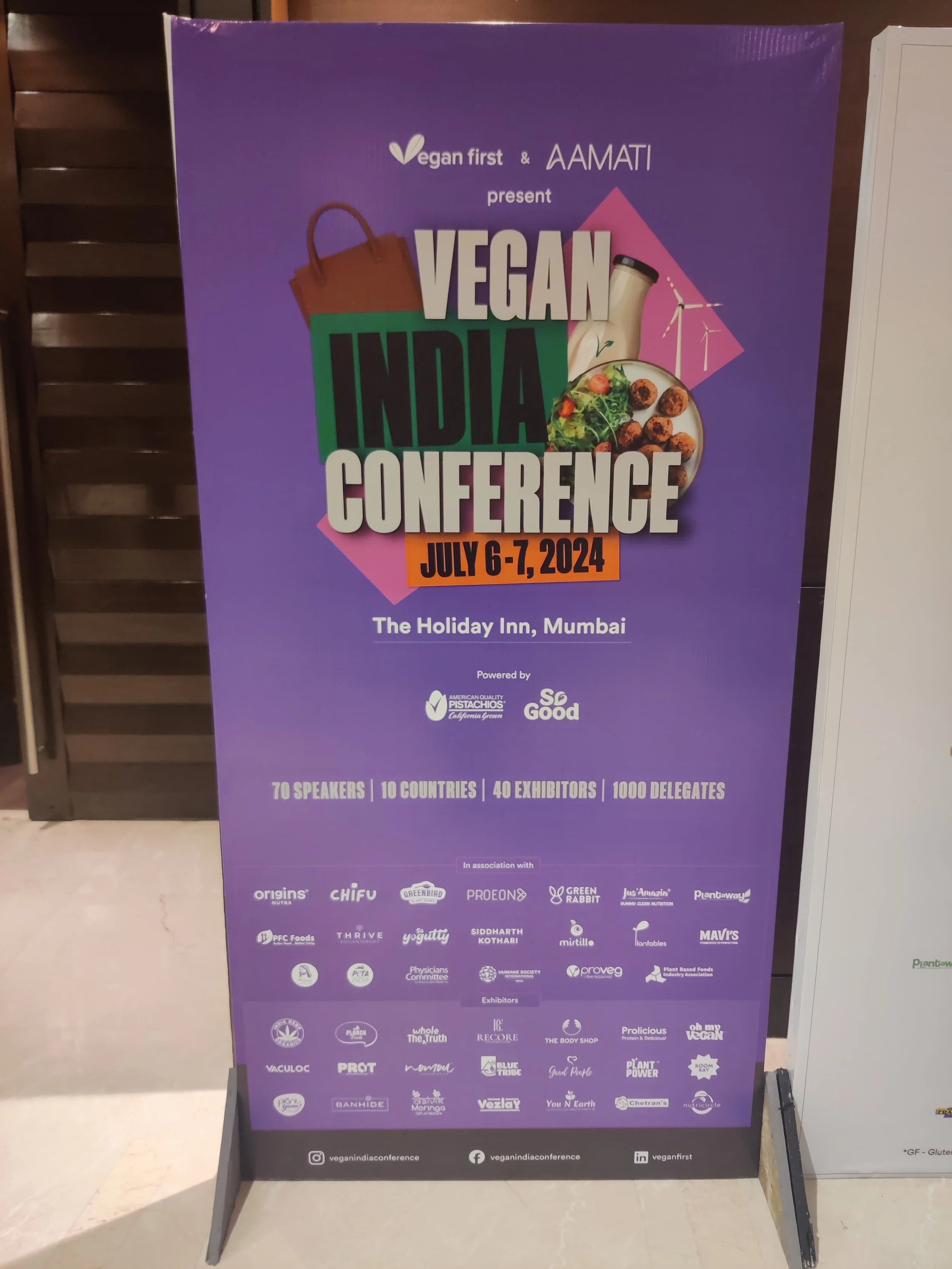Vegan India Conference: Takeaways for Restaurants and Hotels
/An annual initiative by Vegan First, Vegan India Conference (VIC) stands out as one of the most coveted events shaping the plant-based ecosystem in India. The third edition of this conference was held on July 6-7, 2024 at the Holiday Inn in Mumbai. Certified Vegan Hospitality Consultant, Khushi Goyal, founder of Vegan Solutions and based in India, attended the conference and wrote this article highlighting the key insights from the ‘Future of Food’ Conclave.
Plant-Based on the Rise
Plant-based diets in India are becoming mainstream, with numerous brands offering diverse alternatives.
The consumer segments embracing plant-based foods include not just vegans, but also flexitarians, eco-conscious individuals and health enthusiasts.
India has also become the 3rd largest market for cruelty-free products.
Challenges
Price parity: Exorbitant taxes on plant-based products (eg: 12-18% for vegan milk, while 0-5% for dairy milk) hinder affordability
Media Bias: Significant media bias and discrimination lead to the spread of misinformation
Funding Shortage: There is a notable lack of funding opportunities from aligned investors
Regulatory Hurdles: The government regulations for novel food industries (such as alternative meat or protein) lack clarity and guidance
Additional Regulations: FSSAI regulations for vegan foods are time-consuming, expensive, and involve confidentiality issues
Opportunities
Global Production Hub: India has vast potential to be a global producer and exporter of plant protein ingredients (legumes, pulses, cereals, soy, peas), benefiting farmers significantly.
Business Expansion: Hospitality businesses can attract and cater to a broader consumer base (vegans, flexitarians, lactose intolerant individuals, health-conscious people) by working with a vegan hospitality consultant to add vegan options to their menus.
Effective Marketing: Targeting the right audience with the right message can help overcome price sensitivity and concerns: Highlighting product benefits beyond vegan (e.g. convenience, nutritional value, clean label) gives consumers a compelling reason to buy. Using inclusive terminology (e.g., "plant-based" or “high protein” patty instead of "mock meat" patty) can appeal to a wider audience, including vegetarians.
Case Studies
Nature’s Basket
Growth: Nature's Basket saw a 45% increase in vegan food products, with 70% being dairy alternatives (butter being the most popular) and the remaining being meat alternatives
New Brands: They introduced 30 new vegan brands
Customer Loyalty: They have 1,00,000 vegan customers as per their survey, with a 55% repeat rate
Swiggy
Increased Demand: Swiggy experienced a 137% hike in demand for vegan food options.
Instamart Surge: Instamart recorded a 120% increase in demand for vegan products, with 90% for dairy alternatives and 10% for meat alternatives.
In summary, by addressing these challenges and leveraging the vast opportunities, hospitality businesses can lead and revolutionize India’s vibrant and rapidly growing plant-based market.
Ready to get started in attracting the vegan, vegetarian, and flexitarian market to your restaurant, hotel, or F&B business? Schedule a free consult to learn more.
Do you represent a hotel that already caters to vegan guests? Apply for our Vegan Hospitality & Tourism Certification program here.



